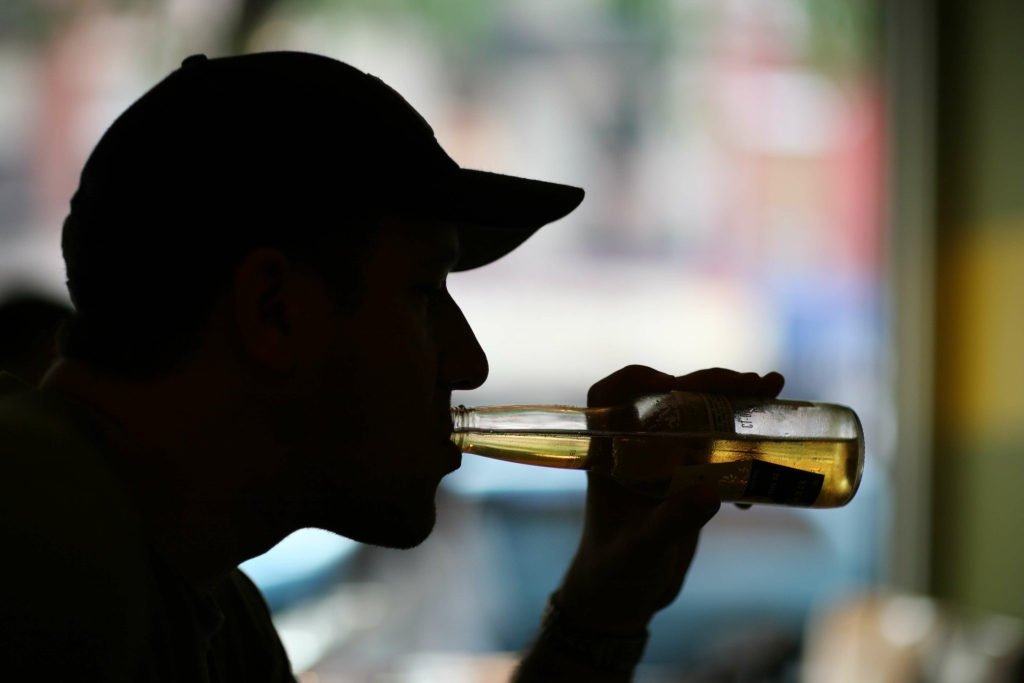The Difference Between Sub-Acute & Acute Detox
Contents
Having additional support beyond the detox process will be conducive in keeping someone on the right track of sobriety. Getting personalized help can make the difference after detoxing off drugs and alcohol to stand the course of one day at a time. Certain psychoactive substances do not have a high likelihood of causing physical dependence. For instance, marijuana and most psychedelics aren’t likely to cause changes in your brain that lead to chemical dependence, but they can become psychologically addictive. For instance, someone with a psychological addiction to marijuana may feel like they can’t get to sleep without smoking, even though marijuana may not have any effects that directly cause sedation or hypnosis. Psychological addictions can also lead to more severe symptoms like depression, anxiety, or drug cravings.
Stimulants like cocaine typically cause psychological symptoms like depression and anxiety, though there may be a few physical symptoms. However, depression can be severe, leading to suicidal thoughts or actions. Concentrates on muscle strength and tone, gross and fine motor coordination, visual/perception difficulties, positioning, wheelchair management, cognition and activities of daily living. Various treatments include range of motion exercises, splinting, coordination exercise, compensatory training, positioning devices, and ADL practice in a real-life setting. We are proud to have attained 5 STARS from CMS for our Short-Stay Resident Care.
Exposure and Response Prevention Skills Group is a clinical and psychoeducational group that takes the form of CBT to treat OCD symptoms. ExRP exposes clients to thoughts, images, objects, and situations that trigger tips for reducing alcohol consumption obsessive thoughts and guides them through the event, helping them to avoid their usual compulsions and make different choices. Many people assume that once a drug is out of their system, they’ll be good to go.

Our team of experts works together to tackle both the physical and psychological aspects of addiction. Fill out our form or contact us today to learn more about our drug and alcohol addiction treatment programs. We publish material that is researched, cited, edited and reviewed by licensed medical professionals.
Like the name suggests, detox is the process of removing toxins from the body. When it comes to drugs and alcohol, this is the process of waiting for your body to eliminate the harmful substances in it. At Ranch Creek Recovery, your loved one’s physical health and overall wellbeing is paramount. Generally speaking, it refers to the intensity of the detoxification process and the methods implemented to safely ensure your loved one’s transition back to a sober state of being.
This rating reflects that the quality of our subacute care is “much above average”. If Lifeskills is not found to be the appropriate placement, we will provide referrals to high-quality, trusted providers aligned with the clinical and financial requirements needed. If it’s determined that Lifeskills is the right clinical and financial fit, an admissions date is scheduled. Cognitive Remediation Group is an experiential and psychoeducational group utilizing cognitive remediation programming for increasing neuro-flexibility. The Urgent SNF™ Service supports a global healthcare expectation for the right provision of care in the right place at the right time. In less severe circumstances, over-the-counter medications can often be used to alleviate symptoms.
Detoxification Admission Criteria
Discover more about what our subacute care program can offer you by reaching out to our staff today. We’re happy to answer your questions and discuss what you’ll need to make a full recovery in comfort. Riverview Estates Rehabilitation and Senior Living is ideally situated to help ease your transition from hospital to home due to surgery or illness.
For some, a medical detox is necessary to safely begin the recovery process. Taking the time to investigate your options ensures that your loved one will receive proper clinical guidance and care during the detoxification process. If you or someone you know is struggling with a substance use disorder or withdrawal symptoms, and you’d like to learn more about treatment and safe detox, speak to an addiction specialist at Serenity at Summit. Addiction is a complicated disease that requires a wide range of treatment options to address it effectively. If you’re seeking addiction treatment, your needs may not be identical to someone else who has a substance use problem.
If you have a high potential for acute withdrawal, or if you show up to treatment intoxicated, you may be placed in medical detox. However, if you don’t have a significant potential for acute withdrawal, you may be placed in a lower level of care. 18 hours to five days after the initial start, the most severe symptoms of withdrawal begin to set in. Medication and therapy can be used during this time to help the patient feel more comfortable and stay on track. The rehabilitation process is never an easy one; that’s why it’s crucial to choose a supportive rehab environment that enhances your physical and emotional wellbeing and maximizes your independence. In our Transitions Unit you will receive the subacute care you need, reducing your odds of rehospitalization, infection, and increasing your odds of a great recovery.
The stages of detox
Buprenorphine is an alternative to methadone medication that requires full-time enrollment in a highly structured clinic. Residential detox facility, urgent care center, or doctor’s office. By spending time in rehab , you’ll have the chance to really dig in and find out what drove you to drugs or alcohol in the first place. That’s important because, unless any co-occurring conditions are treated, you’ll just be addressing the symptoms. As an essential healthcare provider, We are open and supporting those in need of addiction treatment at all locations.
- It’s called for if a person is either physically or mentally unstable.
- He has served as a Consultant & Licensure Specialist to numerous facilities and has served as a Drug Court Panel member.
- Some patients may also live at home, visiting a facility for several monitoring appointments.
- Understanding the types of detox available can help your loved one begin their recovery journey in a safe and secure clinical setting.
- By spending time in rehab , you’ll have the chance to really dig in and find out what drove you to drugs or alcohol in the first place.
- If you have undergone or suffered any of these injuries, surgeries, or conditions, you will find that our subacute program is well-equipped to support you.
We have an integrated and experienced admissions team available to assess and guide people to clinically and financially aligned services. Our team connects callers to our diversified services at Lifeskills or to our external, trusted clinical provider network. Meditation Skills Group is an experiential and clinical group specifically for teaching evidence-based skills for decreasing anxiety and maladaptive anxious patterns of behavior. This group focuses on teaching various stress reduction techniques and process thoughts and behaviors related to being “present” in their day-to-day functioning. These skills help clients gain self-awareness and insight regarding their disposition, challenges, and strengths. Both full and sub-acute detox may involve medication, particularly when the patient is addicted to alcohol, opioids, or sedatives.
Clinical Groups at Lifeskills Fort Lauderdale
Withdrawal symptoms are caused when your brain chemistry is suddenly thrown out of balance. As you become dependent on a drug, your brain will adapt your natural brain chemistry to include the new psychoactive substance. Your brain alcohol addiction & abuse may stop producing some of its own endogenous chemicals and replace them with the effects of the drug. It may also increase the production of other chemicals that are used to counteract the drug to achieve balanced brain chemistry.
Sub-acute detox is for those undergoing recovery with less severe withdrawal symptoms in comparison to full detox. This usually occurs with less medical supervision in an out-patient setting. This could be an urgent care center, doctor’s office, intensive outpatient program, or residential detox facility. If manageable, it can be done at home with occasional visits to the doctor to monitor progress.Sub-acute detox is for those that are in an overall better state of health who used less harmful substances. While it can still take hours, days, or weeks, sub-acute detox allows the patient more freedom than acute detox. Sub-acute detox is a great option for individuals suffering from more than one problem, a condition known as co-occurring disorders.
For this reason, it’s important to undergo the process of detoxification under medical supervision. At this point, medical professionals will assess the patient’s mental state and existing medical issues, as well as review medical and drug history. Blood, urine, or breath testing will be used to determine the presence and amount of alcohol and drugs in the body. Because suddenly quitting drugs or alcohol alone can be fatal, it’s best to detox under medical supervision.

Learn more about what we offer, what we treat and our renowned, serene detox and addiction rehab center. Our accredited facility incorporates a time-tested holistic approach, individually tapered to every person. This ensures that your loved one’s individual and unique needs are met throughout their recovery journey, enabling them to focus solely on their sobriety and achieving sustained personal success. Making sure the treatment program is run by licensed treatment providers within an accredited facility ensures that the program and its staff are of the highest quality. But, for many people struggling with addiction, the beginning of their rehabilitation can often be the most difficult. For a number of addictive substances , detox is necessary to get the body back to a sober state of being.
.dfill:#fff;.efill:#3a997d;.dfill:#fff; Seacrest Rehabilitation & Healthcare Center
This means the common alcoholic cannot return home and regularly attend social events where alcohol is prevalent. In addition, it is vital that the alcohol-dependent individual severs relationships with other users, no matter how close or long-lasting a friendship may have been. There are few things that will tank a person’s sobriety faster than hanging out with the wrong crowd. The second and third dimension deals with biomedical and psychological conditions and complications. If you have significant needs in these categories, you may need attentive medical or clinical care, but 24-hour medically managed treatment may not be necessary. Medically monitored and clinically managed treatment are available at lower levels of care like in binge drinking for teens or residential services.
Don’t Wait! Contact the Shores Treatment & Recovery And get the addiction help you deserve
Other individuals may experience less dangerous withdrawal symptoms and won’t need to be so closely monitored. Once you’ve successfully detoxed from drugs or alcohol, you’re now clean and ready to begin treatment. This may involve counseling, 12-step meetings, rehab, or a combination of these methods.
Subacute Rehab
Our highly skilled therapists are here to help you reach your goals as quickly and safely as possible, with the ultimate objective of getting you back home. An individualized therapy regimen is initiated after an evaluation and delivered according to a physician approved treatment plan, with therapies offered up to 7 days a week. As a result, you have every support that you need to recover quickly, in comfort.
His first experience in treatment was as a cash-pay client in a high-end residential facility that “graduated” him as soon as his money ran out. About 3 months after being sent to a ¾-way home that was overrun with drugs, he relapsed and felt hopeless. Fortunately, a family friend found him a bed at a center for homeless men with addictions. After graduating a year-long program, Lyle felt compelled to give back and began doing service work. Quickly this turned into a passion to help others that led to study the treatment industry top to bottom. He learned state statutes and regulations, and studied counseling practices from several angles.

